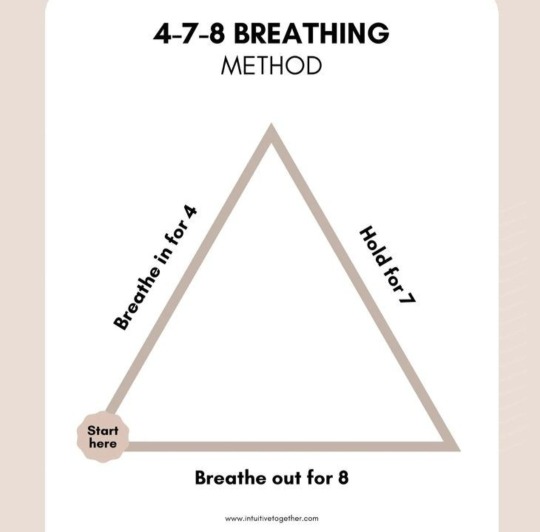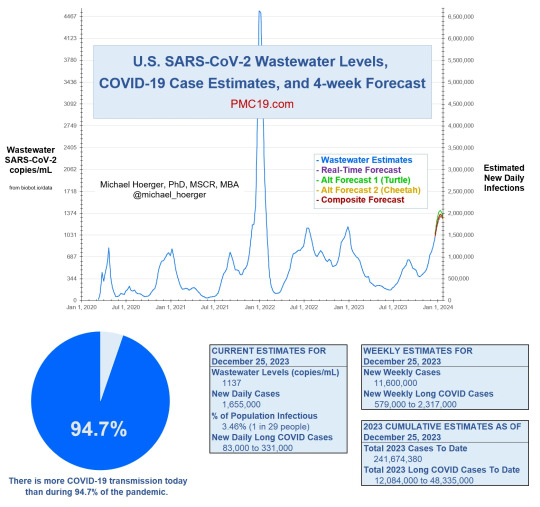#reduces risk of chronic diseases
Text
A comprehensive guide to finding out the health benefits of proper sleep
Adequate sleep has numerous health benefits, including:
1. Improved Memory: Sleep helps the brain commit new information to memory through a process called memory consolidation.
2. Enhanced Concentration and Productivity: Good sleep can maximize problem-solving skills and enhance memory. Poor sleep has been shown to impair brain function.
3. Lower Risk of Heart Disease and Stroke: Sleeping…

View On WordPress
#aids in digestion#aids in weight management#boosts immune system#enhances creativity#enhances mood#improves athletic performance#improves concentration#improves learning ability#Improves memory#improves mental health#improves skin health#increases lifespan#increases productivity#promotes growth in children#promotes heart health#promotes muscle repair#reduces inflammation#reduces risk of chronic diseases#reduces risk of depression#reduces stress
0 notes
Text
Vitamin D Deficiency: Symptoms, Causes, and Treatments
Vitamin D is an essential nutrient that is crucial for our overall health and well-being. It plays a vital role in maintaining strong bones, boosting immunity, regulating the absorption of calcium and phosphorus, and protecting against diseases. Despite its importance, many people suffer from vitamin D deficiency, which can lead to a range of health problems. In this article, we will discuss the…

View On WordPress
#Boosts Immune System#Depression and mood swings#Fatigue and tiredness#Health#Healthandnutrition#healthy#Healthy eating#Healthy Food#Improves Mood and Mental Health#Increased risk of infections#Muscle weakness#Reduces Risk of Chronic Diseases#Symptoms of Vitamin D Deficiency#Vitamin D Deficiency#Vitamins#Vitamins D
0 notes
Text
When I was in vet school I went to this one lecture that I will never forget. Various clubs would have different guest lecturers come in to talk about relevant topics and since I was in the Wildlife Disease Association club I naturally attended all the wildlife and conservation discussions. Well on this particular occasion, the speakers started off telling us they had been working on a project involving the conservation of lemurs in Madagascar. Lemurs exist only in Madagascar, and they are in real trouble; they’re considered the most endangered group of mammals on Earth. This team of veterinarians was initially assembled to address threats to lemur health and work on conservation solutions to try and save as many lemur species from extinction as possible. As they explored the most present dangers to lemurs they found that although habitat loss was the primary problem for these vulnerable animals, predation by humans was a significant cause of losses as well. The vets realized it was crucial for the hunting of lemurs by native people to stop, but of course this is not so simple a problem.
The local Malagasy people are dealing with extreme poverty and food insecurity, with nearly half of children under five years old suffering from chronic malnutrition. The local people have always subsisted on hunting wildlife for food, and as Madagascar’s wildlife population declines, the people who rely on so-called bushmeat to survive are struggling more and more. People are literally starving.
Our conservation team thought about this a lot. They had initially intended to focus efforts on education but came to understand that this is not an issue arising from a lack of knowledge. For these people it is a question of survival. It doesn’t matter how many times a foreigner tells you not to eat an animal you’ve hunted your entire life, if your child is starving you are going to do everything in your power to keep your family alive.
So the vets changed course. Rather than focus efforts on simply teaching people about lemurs, they decided to try and use veterinary medicine to reduce the underlying issue of food insecurity. They supposed that if a reliable protein source could be introduced for the people who needed it, the dependence on meat from wildlife would greatly decrease. So they got to work establishing new flocks of chickens in the most at-risk communities, and also initiated an aggressive vaccination program for Newcastle disease (an infectious illness of poultry that is of particular concern in this area). They worked with over 600 households to ensure appropriate husbandry and vaccination for every flock, and soon found these communities were being transformed by the introduction of a steady protein source. Families with a healthy flock of chickens were far less likely to hunt wild animals like lemurs, and fewer kids went hungry. Thats what we call a win-win situation.
This chicken vaccine program became just one small part of an amazing conservation outreach initiative in Madagascar that puts local people at the center of everything they do. Helping these vulnerable communities of people helps similarly vulnerable wildlife, always. If we go into a country guns-blazing with that fire for conservation in our hearts and a plan to save native animals, we simply cannot ignore the humans who live around them. Doing so is counterintuitive to creating an effective plan because whether we recognize it or not, humans and animals are inextricably linked in many ways. A true conservation success story is one that doesn’t leave needy humans in its wake, and that is why I think this particular story has stuck with me for so long.
(Source 1)
(Source 2- cool video exploring this initiative from some folks involved)
(Source 3)
#we can save the world just maybe not in the way we’d planned#long post#scicomm#conservation#lemurs#wildlife#ecology#animals#vet med#veterinary medicine#One Health
30K notes
·
View notes
Text
Organic vs. Conventional Foods: Health Debate Unveiled
In the grocery aisle, the choice between organic and conventionally grown foods often leaves shoppers wondering about the health implications. Organic foods are often touted as a healthier choice. but, the debate over their superiority compared to conventionally grown foods has been ongoing. Various studies have yielded mixed results. Here’s in “Organic vs. Conventional Foods: Health Debate…
#Allergies and organic foods#Antibiotic-free meat and dairy#Antioxidants in organic foods#Benefits of organic livestock practices#Chronic disease risk and organic diet#Conventionally grown foods#Cost of organic foods#Health benefits of organic foods#Long-term health effects of organic foods#Nutrient differences in organic foods#Nutritional content of organic foods#Omega-3 fatty acids in organic dairy#Organic#Organic farming practices#Organic food affordability#Organic food safety#Organic foods#Organic produce nutrient levels#Organic vs. conventional foods#Pesticide residues in food#Real-life success stories with organic foods#Reduced pesticide exposure#Taste of organic foods#Vitamin C in organic produce
0 notes
Text
"The Biden administration on Thursday [August 15, 2024] released prices for the first 10 prescription drugs that were subject to landmark negotiations between drugmakers and Medicare, a milestone in a controversial process that aims to make costly medications more affordable for older Americans.
The government estimates that the new negotiated prices for the medications will lead to around $6 billion in net savings for the Medicare program in 2026 alone when they officially go into effect, or 22% net savings overall. That is based on the estimated savings the prices would have produced if they were in effect in 2023, senior administration officials told reporters Wednesday.
The Biden administration also expects the new prices to save Medicare enrollees $1.5 billion in out-of-pocket costs in 2026 alone.
“For so many people, being able to afford these drugs will mean the difference between debilitating illness and living full lives,” Chiquita Brooks-LaSure, administrator for the Centers for Medicare & Medicaid Services, told reporters. “These negotiated prices. They’re not just about costs. They are about helping to make sure that your father, your grandfather or you can live longer, healthier.”
It comes one day before the second anniversary of President Joe Biden’s signature Inflation Reduction Act, which gave Medicare the power to directly hash out drug prices with manufacturers for the first time in the federal program’s nearly 60-year history.
Here are the negotiated prices for a 30-day supply of the 10 drugs, along with their list prices based on 2023 prescription fills, according to a Biden administration fact sheet Thursday.
What Medicare and beneficiaries pay for a drug is often much less than the list price, which is what a wholesaler, distributor or other direct purchaser paid a manufacturer for a medication before any discounts...

The administration unveiled the first set of medications selected for the price talks in August 2023, kicking off a nearly yearlong negotiation period that ended at the beginning of the month.
The final prices give drugmakers, which fiercely oppose the policy, a glimpse of how much revenue they could expect to lose over the next few years. It also sets a precedent for the additional rounds of Medicare drug price negotiations, which will kick off in 2025 and beyond.
First 10 drugs subject to Medicare price negotiations
Eliquis, made by Bristol Myers Squibb, is used to prevent blood clotting to reduce the risk of stroke.
Jardiance, made by Boehringer Ingelheim and Eli Lilly, is used to lower blood sugar for people with Type 2 diabetes.
Xarelto, made by Johnson & Johnson, is used to prevent blood clotting, to reduce the risk of stroke.
Januvia, made by Merck, is used to lower blood sugar for people with Type 2 diabetes.
Farxiga, made by AstraZeneca, is used to treat Type 2 diabetes, heart failure and chronic kidney disease.
Entresto, made by Novartis, is used to treat certain types of heart failure.
Enbrel, made by Amgen, is used to treat autoimmune diseases such as rheumatoid arthritis.
Imbruvica, made by AbbVie and J&J, is used to treat different types of blood cancers.
Stelara, made by Janssen, is used to treat autoimmune diseases such as Crohn’s disease.
Fiasp and NovoLog, insulins made by Novo Nordisk.
In a statement Thursday, Biden called the new negotiated prices a “historic milestone” made possible because of the Inflation Reduction Act. He specifically touted Vice President Kamala Harris’ tiebreaking vote for the law in the Senate in 2022.
Harris, the Democratic presidential nominee, said in a statement that she was proud to cast that deciding vote, adding there is more work to be done to lower health-care costs for Americans.
“Today’s announcement will be lifechanging for so many of our loved ones across the nation, and we are not stopping here,” Harris said in a statement Thursday, noting that additional prescription drugs will be selected for future rounds of negotiations."
-via CNBC, August 15, 2024
#public health#healthcare#united states#us politics#biden#harris#kamala harris#medicare#medicaid#healthcare accessibility#prescription drugs#big pharma#insulin#good news#hope
3K notes
·
View notes
Text
The 80/20 Rule That Could Save Lives: A Doctor's Guide
Learn how physicians can apply the Pareto Principle to identify the leading preventable causes of death and help patients modify behaviors for substantial reductions in mortality risk.
As physicians, we strive to provide the best care to help our patients live long, fulfilling lives. But with countless diseases and interventions to consider, how can we simplify and focus our limited time during appointments on what matters most?
Photo by Oleksandr P on Pexels.com
What is the Pareto Principle?
The Pareto Principle, also known as the 80/20 rule, is a mathematical concept that…

View On WordPress
#Cancer#chronic disease#Diet#Exercise#Health#heart disease#leading causes of death#mortality#mortality risk#pareto principle#physician guidance#Prevention#reducing death risk#Wellness
0 notes
Text
Heat Intolerance
This disability pride month I'd like to talk about heat intolerance. Because honestly although it's not the first health issue that presented symptoms in my life. It was the first time I was like "I don't think my body works right".
And honestly given disability pride month is during one of the hottest months in the year. It seems fitting. Especially because there's a lot of disabilities and medications that cause it.
What is heat intolerance?
Simply speaking it's the inability for the body to regulate it's temperatures especially in hot settings to cool itself down.
Why is awareness important?
Because gaslighting people or worse not providing them a place to cool down just because you "feel fine" is extremely fucking dangerous.
What are the medicines that can cause heat intolerance?
Antihistamines (Allergy medications) . Decongestants (Sudafed or any medication that has the D at the end of it). Stimulants (ADHD medications. Steroids. Caffeine.) Beta-blockers (blood pressure medications). Overactive bladder treatment. Psychiatric medications (including but not limited to medications for depression and anxiety). Pain relievers. Antibiotics.
What medical conditions can cause heat intolerance?
EDS (Elhers-Danlos syndrome). Autism. ADHD. Migraines. Brain/spinal-cord injury. Sensory processing disorder. Chronic fatigue syndrome. Endocrin problems. POTS. Menopause. Hypothyroidism. Diabetes. Heart Disease. Multiple sclerosis. Mental health disorders.
What should I do if I suspect I have heat intolerance?
Reduce time outside during hot months. Keep your electrolytes up. Drink plenty of water. Stay out of the sun whenever possible if outside. Be aware of the symptoms of heat exhaustion and heat stroke.
Clothes that are best worn for heat intolerance. Loose lightweight breathable fabrics. Natural fibers. Long sleeves that protect from sunburn as sunburns will increase your risk. Light clothes that reflect light. Wide brimmed hats that shade the face and neck.
Cool. So what are those symptoms I'm supposed you be looking for?
Headaches. Excessive fatigue. Mood changes. Muscle cramping or weakness. Nausea/ vomiting. Rapid heartbeat. Excessive sweating or not sweating at all.
When should I do to the doctor?
If you suspect you have heat intolerance you can go to your PCP to discuss what medications you may be on and what you can do about it. Otherwise, please go to the emergency room if you have symptoms of heat stroke.
This is good information and all but why are you making this post?
To raise awareness. Not just for the people that have it but weren't aware of what it was called. But for all of the idiots that tried to gaslight me when I was in school because I was like "I don't think this is normal. Every time we do our mile run outside I vomit all over the place but other kids aren't doing that."
Also because people always blame me for over heating if I wear long sleeves or pants. I always like to take notes from what people in the middle east wear because they literally live in the excessive heat and spend long hours in the excessive heat. Often in clothing that covers most of their body. They've gotta know what they're doing, right?
I have some type of xenophobic comment about why people from the middle east cover up
Shut the fuck up 😊
-fae
10K notes
·
View notes
Text
Transform Your Heart Health with These Top-Ranked Diets
The American Heart Association (AHA) has released its annual list of the best diets for heart health, and the Mediterranean Diet has taken the top spot for the fourth year in a row. The diet, which emphasizes whole foods, including fruits, vegetables, whole grains, lean protein, and healthy fats, has been shown to reduce the risk of heart disease, stroke, and other chronic illnesses. The AHA…

View On WordPress
#American Heart Association#chronic illnesses#DASH diet#Flexitarian diet#fruits#healthy eating#healthy fats#healthy weight#heart disease#heart health#lean protein#lifestyle changes#Mediterranean diet#physical activity#reduce risk#strength training#stroke#vegetables#whole foods#whole grains
1 note
·
View note
Text
Frankincense (Boswellia Carteri) and DNA Repair🧬 💉🤯
Frankincense, or Boswellia carteri, has been revered for its therapeutic properties across various cultures and religious texts, including the Bible. Its usage dates back thousands of years, cited for its capacity to heal and purify. Interestingly, modern scientific research has begun to uncover that the resin of Frankincense may have properties that contribute to cellular health, including DNA repair.
Properties of Frankincense:
Anti-inflammatory: Boswellic acids, the active compounds in frankincense, are known for their powerful anti-inflammatory effects.
Antioxidant: Frankincense is rich in antioxidants, which help protect cells from damage caused by free radicals.
DNA Repair:
Recent studies suggest that frankincense may contribute to DNA repair mechanisms. The presence of compounds in frankincense can potentially support the body's natural ability to heal and regenerate by:
Reducing Oxidative Stress:
Antioxidants in frankincense mitigate oxidative stress, which can damage DNA. By reducing such stress, frankincense helps preserve the integrity of genetic material.
Anti-inflammatory Effects:
Chronic inflammation can lead to DNA damage and subsequently, various diseases. The anti-inflammatory properties of frankincense reduce such risk factors, indirectly supporting DNA repair.
In the biblical narrative, particularly in texts like Genesis and the Book of Enoch, it's mentioned that fallen angels (Nephilim) sought to corrupt mankind's DNA. If seen from this perspective, the concept that frankincense—a substance already revered in biblical times—can contribute to restoring and repairing DNA is compelling and symbolic.
Purification: Frankincense has traditionally been seen as purifying. In the spiritual sense, using frankincense to "repair" DNA could symbolize the restoration of divine order and purity, aligning humanity closer to what some might interpret as the original creation by God.
Spiritual Healing: This idea ties into the broader spiritual and healing properties traditionally ascribed to Frankincense. It represents not just physical, but also metaphysical restoration.
A Fascinating Intersection: The intersection of ancient spiritual beliefs and modern scientific findings presents a fascinating scenario. The idea that a substance mentioned in the Bible as sacred and healing could, in fact, have properties that support DNA repair underscores the timeless nature of traditional wisdom, harmonizing with contemporary science. 🤔
#pay attention#educate yourselves#educate yourself#knowledge is power#reeducate yourself#reeducate yourselves#think about it#think for yourselves#think for yourself#do your homework#do your own research#do some research#ask yourself questions#question everything#natural remedies#for your health#health tips#frankincense
639 notes
·
View notes
Text
"Since 2020, the condition known as long COVID-19 has become a widespread disability affecting the health and quality of life of millions of people across the globe and costing economies billions of dollars in reduced productivity of employees and an overall drop in the work force.
The intense scientific effort that long COVID sparked has resulted in more than 24,000 scientific publications, making it the most researched health condition in any four years of recorded human history."
...
It concludes that long COVID is a complex chronic condition that can result in more than 200 health effects across multiple body systems. These include new onset or worsening:
heart disease
neurologic problems such as cognitive impairment, strokes and dysautonomia. This is a category of disorders that affect the body’s autonomic nervous system – nerves that regulate most of the body’s vital mechanisms such as blood pressure, heart rate and temperature.
post-exertional malaise, a state of severe exhaustion that may happen after even minor activity — often leaving the patient unable to function for hours, days or weeks
gastrointestinal disorders
kidney disease
metabolic disorders such as diabetes and hyperlipidemia, or a rise in bad cholesterol
immune dysfunction
Long COVID can affect people across the lifespan from children to older adults and across race and ethnicity and baseline health status. Importantly, more than 90% of people with long COVID had mild COVID-19 infections."
There is still no cure.
542 notes
·
View notes
Text
GLOW UP DIARY #5 : FIND YOUR PURPOSE

"pain is a price to pay for happiness"
-kim seungmin (straykids)

© bloomzone!!
#5:FIND PURPOSE
✉️:Finding a meaningful life purpose is a profound journey that many people embark on at different stages of their lives. It involves discovering what brings fulfillment, direction, and satisfaction. Identifying a purpose can help guide decisions, inspire actions, and provide a sense of meaning in both personal and professional aspects of life.
1.Ikigai: The Japanese Secret to Finding Your Life’s Purpose
﹙ 💌 ﹚ we will explore the concept of Ikigai, a Japanese term that means “a reason for being.” Ikigai is important to know because it offers a pathway to finding purpose and joy in life. It involves harmonizing four key elements: what you love, what you are good at, what the world needs, and what you can be rewarded for...
2.EVERYTHING ABOUT IKIGAI
Basically, ikigai is seen as the convergence of the following four core elements:
1. What you love (your passion)
2. What the world needs (your mission)
3. What you are good at (your vocation)
4. What you can get paid for (your profession)
The word ikigai, that space in the middle of these four primary elements, is seen by the Japanese as the source of value or what make one's life truly worthwhile.
THE 10 RULES OF IKIGAI
1. Stay Active, Don’t Retire:
- The idea behind this rule is to keep your mind and body engaged in meaningful activities. Retirement doesn't mean stopping all productive work. It encourages finding activities you enjoy and continuing to contribute to society, which can provide a sense of purpose and satisfaction.
-Benefits: Staying active helps maintain cognitive function, physical health, and emotional well-being. It can prevent feelings of uselessness and isolation.
2. Take It Slow:
- Embrace a slower, more deliberate pace of life. Instead of rushing through tasks, take time to savor and appreciate the process.
- Benefits:This can reduce stress and anxiety, improve the quality of your work and help u enjoy life more fully. It encourages mindfulness and living in the present moment.
3. Don’t Fill Your Stomach:
- The 80% rule, also known as "hara hachi bu" advises stopping eating when you're 80% full, rather than completely sated.
- Benefits: This practice promotes better digestion, prevents overeating, and can lead to a healthier weight. It’s associated with longevity and reduced risk of chronic diseases.
4. Surround Yourself with Good Friends:
- Build and maintain strong, positive relationships. Spend time with people who uplift and support you.
- Benefits: Good friends provide emotional support, reduce stress, and enhance your sense of belonging. Strong social connections are linked to better mental health and increased life expectancy.
5. Get in Shape for Your Next Birthday:
- Regular physical activity is essential for maintaining health and energy. Aim to improve or maintain your fitness level each year.
- Benefits: Exercise boosts physical health, mental clarity, and mood. It helps prevent chronic diseases, improves sleep, and enhances overall quality of life.
6. Smile:
- Adopting a positive attitude and smiling can improve your mood and the mood of those around you.
- Benefits: Smiling releases endorphins, reduces stress, and promotes a positive outlook. It can improve social interactions and relationships.
7. Reconnect with Nature:
- Spend time outdoors and appreciate the natural world. This can involve walking in parks, hiking, gardening, or simply enjoying a sunny day.
- Benefits: Nature exposure reduces stress, boosts mood, and improves mental health. It can also enhance physical health and encourage a sense of wonder and connection to the world.
8. Give Thanks:
- Practice gratitude regularly by acknowledging and appreciating the positive aspects of your life.
- Benefits: Gratitude enhances happiness, reduces negative emotions, and improves mental health. It can also strengthen relationships and foster a more positive outlook on life.
9. Live in the Moment:
- Focus on the present rather than dwelling on the past or worrying about the future. Engage fully in whatever you are doing at the moment.
- Benefits:This practice, also known as mindfulness, reduces stress and enhances enjoyment and satisfaction. It can improve mental clarity and emotional regulation.
10. Follow Your Ikigai:
-Discover and pursue your Ikigai—the intersection of what you love, what you are good at, what the world needs, and what you can be paid for. Let this guide your life choices and actions.
- Benefits:Finding and following your Ikigai leads to a fulfilling and meaningful life. It helps align your passions with your skills and societal contributions, resulting in a sense of purpose and happiness.
3.Discover Your Ikigai: Guided Journal Prompts for a Meaningful Life
Ikigai journal prompts can help you explore and clarify your purpose and passions. Here are some prompts to guide your reflection:
Exploring Your Passions
1. What activities make you lose track of time?
2. What did you love to do as a child that you may have forgotten about?
3. What topics or activities are you naturally drawn to?
4. When do you feel most alive and engaged?
5. If you could do anything without worrying about money or other obligations, what would it be?
Identifying Your Strengths
6. What skills or talents do you excel at?
7. What do people frequently ask for your help with?
8. What accomplishments are you most proud of?
9. What feedback have you received that highlights your strengths?
10. When have you felt most competent and capable?
Understanding What the World Needs
11. What issues or causes do you care deeply about?
12. How do you want to make a difference in the world?
13. What problems do you see in your community that you wish you could solve?
14. What do you believe the world needs more of?
15. What impact do you want to have on others' lives?
Finding What You Can Be Paid For
16. What professional roles or careers have you considered?
17. How can you monetize your skills or passions?
18. What services or products can you offer that others would pay for?
19. What industries or fields are you interested in exploring for potential income?
20. What value do you bring to your current job or any job you’ve held?
Integrating Ikigai
21. How can you combine your passions, strengths, and what the world needs into a potential career or hobby?
22. What small steps can you take to start aligning your daily activities with your Ikigai?
23. What changes can you make in your life to focus more on your Ikigai?
24. Who can support you on your journey to finding and living your Ikigai?
25. What would a typical day look like if you were fully living your Ikigai?
Reflecting on Progress
26. What have you learned about yourself through this journaling process?
27. How has your understanding of Ikigai evolved over time?
28. What obstacles have you encountered in pursuing your Ikigai, and how can you overcome them?
29. What successes have you experienced in aligning your life with your Ikigai?
30. How can you maintain balance and avoid burnout while pursuing your Ikigai?
ıllı ⠀ : ⠀Let ur passion be your guiding star, leading you to a life filled with joy, purpose, and unshakable fulfillment.stay healthy I love u <143 ❛ ⠀ ♡ ⠀ !!
© bloomzone
#𝜗𝜚 ── ⊹ ‧#becoming that girl#wonyoungism#glow up#wonyoung#dream life#it girl#creator of my reality#divine feminine#it girl affirmations#love affirmations#glowingskin#ikigai#love yourself#dream girl tips#clean girl#pink aesthetic#skincare#get motivated#vanilla girl#goals#happiness#pink bows#affirmations#jang wonyoung#dream girl journey#just girly thoughts#journal
445 notes
·
View notes
Text
SEVENHİLLSSHOPPİNG - MEGA+ (2)

Iranian saffron, available at Seven Hills Shopping, offers a variety of health benefits that make it a valuable addition to any diet. This spice is known for its powerful antioxidant properties, which can help protect the body against oxidative stress and reduce inflammation. Additionally, saffron has been shown to improve mood and treat depressive symptoms, making it a potentially useful tool for managing mental health conditions. Studies have also suggested that saffron may have cancer-fighting properties, reducing the risk of certain types of cancer. With these benefits in mind, incorporating Iranian saffron into your cooking can be an easy and delicious way to support your overall health. Turkish nuts, such as almonds and pistachios, available at Seven Hills Shopping, are packed with nutrients that can benefit overall health. These nuts are rich in healthy fats, protein, fiber, and a variety of vitamins and minerals, making them a nutritious and satisfying snack. Almonds, for example, are a good source of vitamin E, which can help protect against heart disease and other chronic conditions. Pistachios have been shown to improve cholesterol levels and reduce the risk of heart disease. By incorporating Turkish walnuts into your diet, you can enjoy a variety of nutritional benefits that support overall health and well-being. Turkish spices, such as cinnamon and chili, available at Seven Hills Shopping, offer a variety of health benefits beyond their delicious taste. Cinnamon, for example, has been shown to have anti-inflammatory properties that can help combat chronic inflammation, a common factor in many chronic diseases. Chili peppers contain capsaicin, which has been shown to reduce appetite and aid loosing weight tea, as well as potentially reducing the risk of certain types of cancer. By incorporating Turkish spices into your cooking, you can add flavor and nutrition to your meals while reaping a variety of health benefits.
1K notes
·
View notes
Text
How neuroscience-backed practices can boost your long-term health and cognitive function
In the pursuit of optimizing both mental and physical well-being, neuroscientific research offers valuable insights into specific practices that have long-term benefits. Below are four highly effective habits supported by science that you can incorporate into your daily routine to improve brain health and overall wellness.


1. Practice 20 minutes of diaphragmatic breathing every day
Diaphragmatic breathing, also known as deep breathing, activates the vagus nerve, a crucial component of the parasympathetic nervous system. This type of breathing helps reduce cortisol production and lowers heart rate, creating a state of calm. Over time, regular practice of diaphragmatic breathing can significantly reduce chronic stress, improve emotional regulation, and enhance cardiovascular health.
Scientific support: studies have shown that consistent diaphragmatic breathing can alter the body's stress response, leading to long-term benefits such as lower blood pressure and improved heart rate variability—an indicator of cardiovascular resilience.


2. Engage in moderate physical activity for at least 150 minutes a week
Regular physical activity, especially of moderate intensity, has profound effects on brain structure and function. Exercise increases the volume of the hippocampus, the region of the brain associated with learning and memory. It also boosts the production of endorphins and dopamine, which enhance mood and reduce symptoms of depression.
Scientific support: longitudinal studies have found that individuals who maintain regular moderate to intense physical activity have larger brain volumes, a reduced risk of dementia, and better cognitive function compared to those who lead a sedentary lifestyle.


3. Listen to classical or instrumental music while studying
Listening to classical music, such as the works of Mozart, can increase alpha wave activity in the brain, which is associated with a state of relaxed alertness. This type of music stimulates the release of dopamine, a neurotransmitter that enhances motivation and focus.
Scientific support: research has shown that listening to classical music can improve concentration, memory, and learning ability. Over time, regular exposure to this type of music can enhance neuroplasticity, making it easier to learn and consolidate new information.

4. Regularly consume foods rich in choline, such as eggs and broccoli
Choline is an essential nutrient that plays a key role in the production of acetylcholine, a neurotransmitter crucial for memory and learning. Regular intake of choline through diet supports brain health and can improve synaptic plasticity.
Scientific support: studies have indicated that adequate choline intake is associated with better cognitive function and a reduced risk of neurodegenerative diseases such as Alzheimer’s. Over time, a choline-rich diet can support memory and protect the brain from age-related decline.
#it girl#that girl#clean girl#hyper feminine#becoming that girl#glow up tips#healthy girl#pink pilates girl#this is what makes us girls#weight loss#beauty tips#health tips#healthy diet#healthy food#healthylifestyle#healthyliving#health and wellness#neuroscience#stem studyblr#stem girls#stem academia#stemblr#stem#stem education#dream girl tips#tips#diet tips#studyblr#study blog#study tips
198 notes
·
View notes
Text
GUT HEALTH: How it Affects Your body 🍽️🤍✨
Having a healthy gut is important because it plays a central role in the overall functioning of your body. The state of a healthy or unhealthy gut affects all of these things:
Digestion and Nutrient Absorption: The gut's main role is to break down food and absorb important nutrients, including vitamins and minerals. When the gut is healthy, it digests food effectively and maximizes nutrient absorption. When it is not, it can result in digestive issues such as bloating, gas, and diarrhea, as well as nutrient deficiencies.
Immune System Support: About 70% of our immune cells are located in the gut. A balanced gut supports a strong immune response, helping the body fend off illnesses and reduce the risk of infections.
Emotions and Mood: The gut and brain are intricately connected through the gut-brain axis. The gut produces many neurotransmitters, including serotonin, which regulates your mood. An imbalanced gut can influence mental health, leading to issues like anxiety, depression, and even cognitive impairments.
Hormonal Balance: The gut plays a role in the production and modulation of certain hormones. This can impact various bodily functions, from stress responses to reproductive health.
Weight Management: The gut microbiome can influence metabolism, appetite, and fat storage. An imbalanced gut can lead to weight gain and metabolic disorders.
Protection Against Chronic Diseases: Poor gut health has been linked to a higher risk of chronic diseases, including type 2 diabetes, cardiovascular disease, and certain types of cancer.
Detoxification: The gut plays a role in eliminating waste products and toxins from the body.
Inflammation Regulation: A healthy gut can help regulate inflammation in the body. Chronic inflammation, often resulting from an imbalanced gut is a root cause of many diseases.
Skin Health: There's a connection between gut health and skin conditions. Issues like acne, eczema, and rosacea can be influenced by the state of the gut. An unhealthy gut can lead to inflammation, which may manifest as skin issues.
Barrier Function: The gut lining acts as a barrier, preventing harmful substances from entering the bloodstream. A compromised gut lining, often referred to as "leaky gut," can allow toxins and pathogens to enter the bloodstream leading to various health issues.
Production of Vital Compounds: Your gut produces essential compounds, like short-chain fatty acids, which has a lot of positive effects on health from reducing inflammation to supporting brain function.
Sleep Function: The gut produces neurotransmitters and hormones that regulate sleep, such as serotonin and melatonin. An unhealthy gut can disrupt sleep patterns.
#gut health#health and wellness#healthy living#mental health#healthy diet#health#wellness#healthy lifestyle#health tips#health is wealth#food#nutrition#level up journey#self help#self care#personal improvement#personal development#personal growth#skincaretips#skincare
755 notes
·
View notes
Text


There is more COVID-19 transmission today (January 2024) than during 94.7% of the pandemic.
💉 Please get the updated (new, not a booster) Covid vaccine. If you're in the US, ask your local pharmacy about the Bridge Access Program for free vaccines. You can also search vaccines.gov then select Bridge Access Program participant.
If you do not want an mRNA vaccine for whatever reason, consider Novavax: it is protein-based like other typical vaccines from the last few decades, and many (including myself) report minimal side effects. Talk to your doctor if you have questions or concerns.
😷 Wear a mask in public and/or any enclosed areas. "Mask" means a respirator of KN95/N95 filtration or higher, not a cloth or surgical (blue) mask. Covid is airborne, so an airtight seal and particulate filter is necessary for protection. Different kinds of respirators are used for everything from toxic fumes to asbestos removal; when worn properly, they greatly reduce risk.
Here is a guide for proper use and fitting of a respiratory mask.
Here is a short video by 3M (respirator manufacturer) on the importance of fit-testing.
🧪 Have tests ready. With the new variants it can sometimes take 5-8 days to test positive, so be sure to test twice, 48 hours apart. If you're in the US, you can get 4 free rapid tests sent to your home through USPS. Local schools and libraries also may have free rapid tests. If you qualify for the Test to Treat program, you can receive free at-home NAAT tests and treatment for both flu AND Covid, and access to telehealth. The earlier you test positive, the more likely you will be eligible for treatment with Paxlovid.
🔁 If you can afford it, air purifiers and HEPA filters can help reduce transmission. Making a Corsi-Rosenthal box is simple and inexpensive. If weather permits, keeping windows open helps. Ventilation allows fresh air to circulate.
👃 Nasal sprays and CPC mouthwash are other useful prophylactic measures when used in conjunction with PPE and other modes of mitigation like masking and distancing.
🚬There is still a risk of Covid when outside, similar to exposure from secondhand smoke or a fire. Since Covid is spread through aerosols, it can hang in the air like smoke.
🐶 As with other coronaviruses, many household pets can get Covid. If you have been exposed, avoid contact with animals.
"But I'm not old or weak. Why should I care?"
☣ Covid can still kill you or disable you for life, even if your initial sickness is "mild". Even if you are young and have no preexisting conditions. 90% of the original "long haulers" had "mild" cases.
🩺 Covid increases your risk of stroke, blood clots, and heart disease by 2 to 5 times within a year of infection. It can also cause brain damage, which is part of the loss of taste and smell and cognitive symptoms like brain fog.
🩸 Covid is able to infect multiple organ systems because it travels through the bloodstream and attacks the mitochondria, leading to dysfunction and chronic fatigue.
⚠ Reinfection doesn't make your body better at fighting Covid; it just does more damage to your immune system, akin to HIV. A damaged immune system is worse at fighting off illness, more susceptible to infection, and can lead to serious complications like pneumonia. And with every reinfection, your chances of developing Long Covid increase. Therefore, the best protection for your immune system is to avoid getting Covid as much as possible.
I know everyone is tired of this. But if there was any time to be vigilant, it is now. Please, let's protect each other.
302 notes
·
View notes
Text
"For the first time, genetically modified pig kidneys provided “life-sustaining kidney function” during the course of a planned seven-day clinical study—a first step in addressing the critical crisis worldwide of kidney donor organ shortage.
The University of Alabama’s pre-clinical human study at Birmingham also advances the science and promise of xenotransplantation as a therapy to potentially cure end-stage kidney disease—just as a human-to-human transplants can.
“It has been truly extraordinary to see the first-ever preclinical demonstration that appropriately modified pig kidneys can provide normal, life-sustaining kidney function in a human safely and be achieved using a standard immunosuppression regimen,” said UAB transplant surgeon scientist Jayme Locke, M.D., director of UAB’s Comprehensive Transplant Institute and lead author of the paper...
The peer-reviewed findings published last month in JAMA Surgery describes the pioneering pre-clinical human research performed on a recipient experiencing brain death...
The pre-clinical human brain death model developed at UAB can evaluate the safety and feasibility of pig-to-human kidney xenografts, or transplants, without risk to a living human. It is named for transplant pioneer Jim Parsons, an organ donor whose family generously donated his body to advance xenotransplant kidney research, like the latest patient did.
A Critical Need
Kidney disease kills more people each year than breast or prostate cancer, while more than 90,000 people are on the transplant waiting list. More than 800,000 Americans are living with kidney failure and 240 Americans on dialysis die every day. The wait for a deceased donor kidney can be as long as five to 10 years, and almost 5,000 people per year die waiting for a kidney transplant.
Groundbreaking Study Details
The 52-year-old study subject for this research lived with hypertension and stage 2 chronic kidney disease, which affects more than one in seven U.S. adults, or an estimated 37 million Americans. As part of this study, the subject had both of his native kidneys removed and dialysis stopped, followed by a crossmatch-compatible xenotransplant with two 10 gene-edited pig kidneys, or UKidney.
The transplanted pig kidneys made urine within four minutes of re-perfusion and produced more than 37 liters of urine in the first 24 hours. The pig kidneys continued to function as they would in a living human for the entirety of the seven-day study. Also, the kidneys were still viable at the time the study was concluded.
“In the first 24 hours these kidneys made over 37 liters of urine,” said Dr. Locke. “It was really a remarkable thing to see.” ...
Gene editing in pigs to reduce immune rejection has made organ transplants from pigs to humans possible. The natural lifespan of a pig is 30 years, they are easily bred, and they have organs of similar size to humans. Genetically modified pig kidneys have been extensively tested in non-human primates, and the addition of UAB’s preclinical human research model—the Parsons Model—now provides important information about the safety and efficacy of kidneys in human transplant recipients."
-via Good News Network, September 17, 2023
#organ donation#organ donor#organ transplant#medical news#medical research#pigs#kidney transplant#kidney diseases#dialysis#good news#hope#hope posting#human biology
566 notes
·
View notes